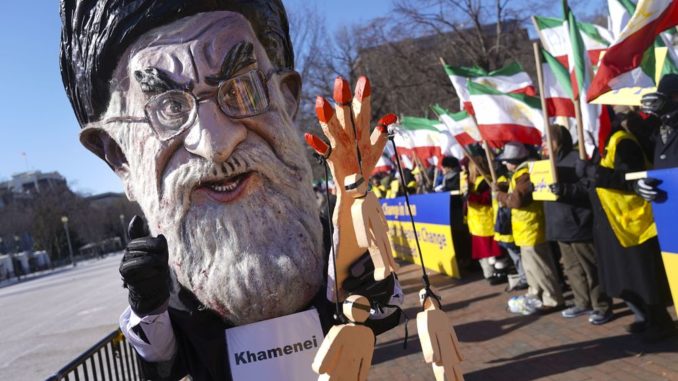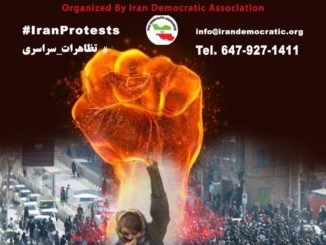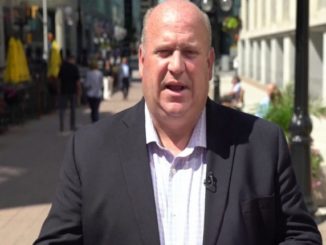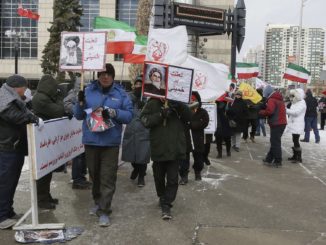
Toronto SUN: By Sheryl Saperia and Saeed Ghasseminejad
The Trudeau government has been under heavy fire lately for its continued pursuit of re-establishing diplomatic ties with Iran, but a shift may be underway. On Monday, several members of the Liberal caucus were strongly supportive of a Conservative motion that calls for, among other things, an immediate cessation of any negotiations to restore diplomatic relations with the Islamic Republic and a prompt designation of Iran’s Islamic Revolutionary Guard Corps (IRGC) as a listed terrorist entity under the Criminal Code. They called on their colleagues to vote in favour of this motion. The vote takes place Tuesday afternoon.
Liberal support for this motion would be a welcome and commendable change in policy. The Iranian regime has not ceased its terrorist sponsorship, human rights abuses and incitement to hatred, and does not deserve to be rewarded with a normalized relationship with Canada.
A less examined angle of the Iran file was highlighted recently as the House of Commons Finance Committee undertook a review of Canada’s anti-money laundering and anti-terrorist financing legislation.
The term “snow washing” came up during these committee hearings, which refers to the process of laundering money and making suspect transactions appear legitimate by leveraging Canada’s international credibility and sound economy. Bring your dirty money to Canada, the idea goes, and it will become white as snow.
Many agreed that the opacity of corporate registration in Canada is a significant inducement to snow washing. As explained by attorney Mora Johnson, “Anyone can start a company in Canada. It costs about $200 and the owner of the company can remain completely anonymous.” There is no requirement to register the true beneficial owners of a private company registered in this country. Consequently, money laundering, tax evasion, and the stashing of proceeds of crime can easily occur.
When a shell company with unknown owners buys expensive real estate in Vancouver or Toronto, many questions arise. “Is it a wealthy person who earned that money? Or is it the Hells Angels?” Johnson asked. “An Iranian or North Korean under UN sanctions? We have no idea.”
Shahin Mirkhan, appearing before the committee, went so far to say: “I’m sure you will direct FINTRAC [the Financial Transactions and Reports Analysis Centre of Canada] to check out the Iranian government officials who have dual citizenship in Canada. They are achieving money laundering to Canada from Dubai, Europe, and everywhere else.”
In Iran, it is no secret that Canada is viewed as a premiere destination for illicit wealth and its owners. One need look no further than the former CEO of Bank Melli, the largest state-owned bank in Iran, who fled to Canada after the judiciary sought to arrest him for his role in embezzling billions of dollars. This bank had been sanctioned at one time by the U.S. Treasury for providing financial services to Tehran’s nuclear and ballistic missile programs. It additionally provided services to Iran’s IRGC-Quds Force, a listed terrorist entity in Canada.
Iranian press has also reported that an unnamed employee at Tehran’s oil ministry stole tens of millions of dollars over a decade, and fled to Canada right after an arrest warrant was issued for him. He was reportedly a Canadian permanent resident.
Guidy Mamann, a well-known Canadian immigration lawyer, tells us that Iranian regime officials are likely coming to Canada through the Quebec investor stream or through the refugee system. For the latter, it would be relatively easy, Mamann suggests, for an Iranian official to claim that he fell out of favour with the government or the religious police, and to get landing under Canada’s refugee protection laws. The official could also lie by withholding the information that he is a government official. The next step is the application for permanent residency (PR) status. The PR application for refugees does not tend to inquire deeply about money and assets, and even if questions are asked, Canadian officials may not check to ensure truthfulness. The refugee brings with him his money – until then perhaps sitting in a Swiss account.
Under Quebec’s investor stream, high net worth foreigners can apply for permanent residency in exchange for making a $1.2 million investment in Quebec. While other provinces have investor-style classes too, Quebec reportedly has the fewest safeguards.
It is also fairly easy to come to Canada as a student. One applies online and provides the required biometric information. Proof of funds must be shown, but there are no questions about whether that money was illicitly obtained. Upon graduating, the foreign student can apply for a three-year work permit. Mamann notes that such a person is virtually guaranteed to receive landing after obtaining one year of work experience and barring a medical or criminal problem. With permanent residency, the individual can also become the recipient of his/her parents’ funds of unknown provenance.
The Canadian immigration and financial supervisory systems should create a database to ensure that corrupt officials, politically connected businessmen, and human rights violators from systemically corrupt foreign states, such as Iran, are not able to use Canada as a money-laundering base and safe haven. Notably, this will also be helpful for identifying those individuals who ought to be subject to Magnitsky sanctions in Canada.
Surely, preventing such criminals from exploiting our system is a goal we can all agree on. Liberal support for today’s motion could signal an important step in this direction.
— Sheryl Saperia is Director of Policy for Canada at the Foundation for Defense of Democracies, where Saeed Ghasseminejad is an Iran Research Fellow.




